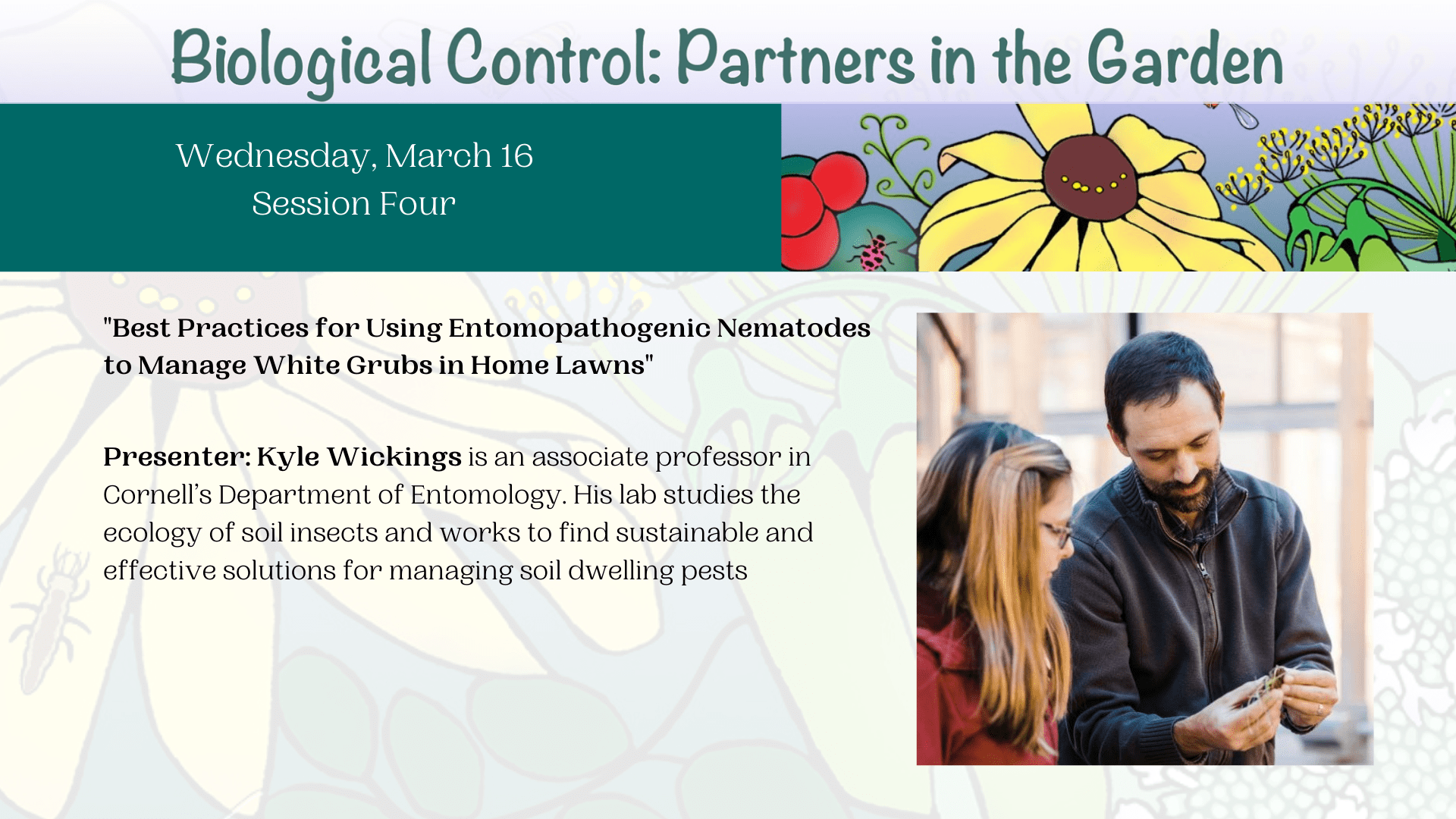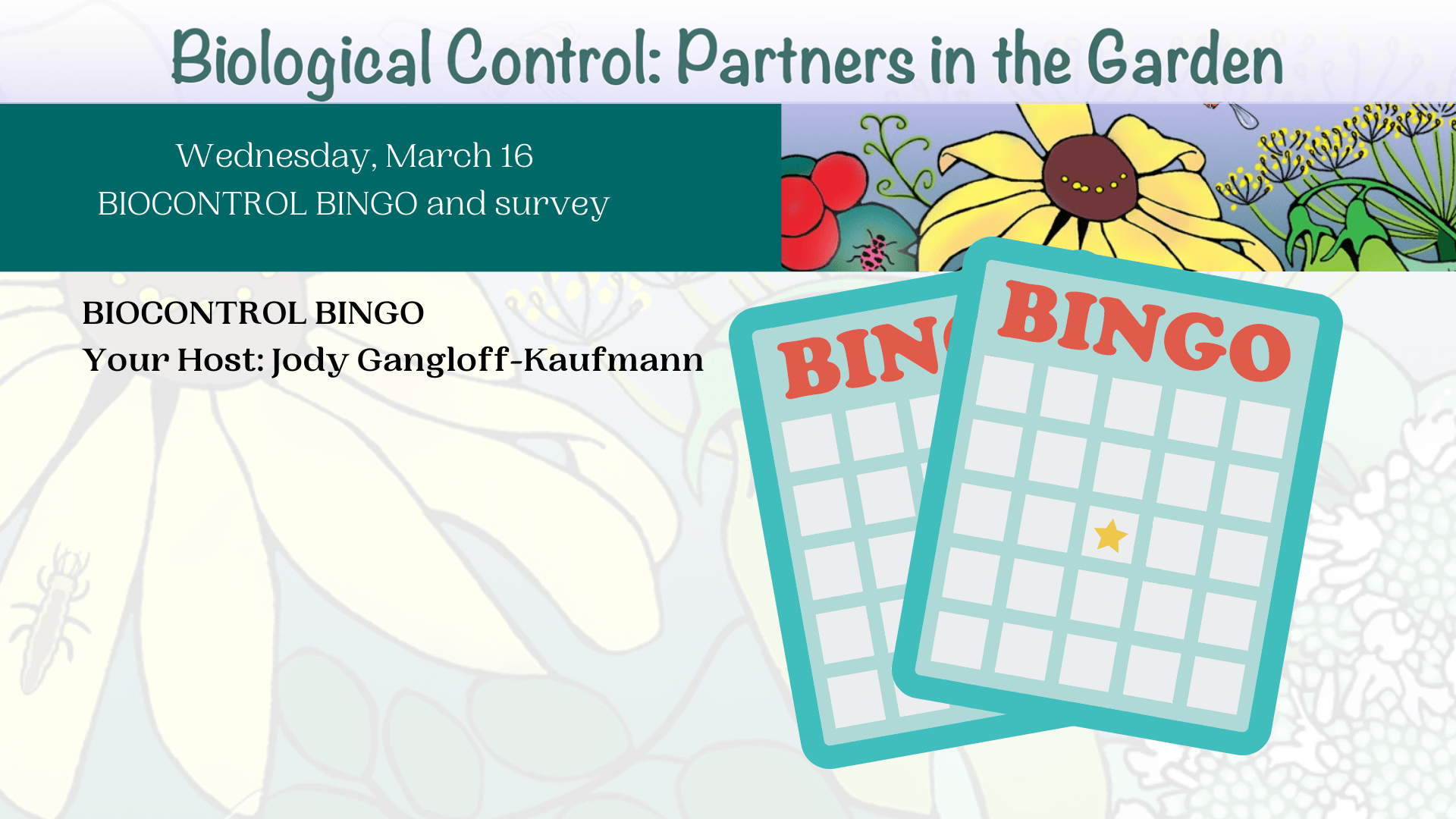Learn to recognize and encourage your existing biological control partners. Have you ever noticed hoverflies around your flowers or seen ladybug larvae munching on aphids in the vegetable garden? Taking advantage of the natural enemies already occurring in your garden is an excellent way to reduce pesticide use.
Tuesday, March 15—Wednesday, March 16
Have you registered? Visit our Annual Conference page for more information and Registration Links (Pay by credit card, or pay by check).
On Wednesday:
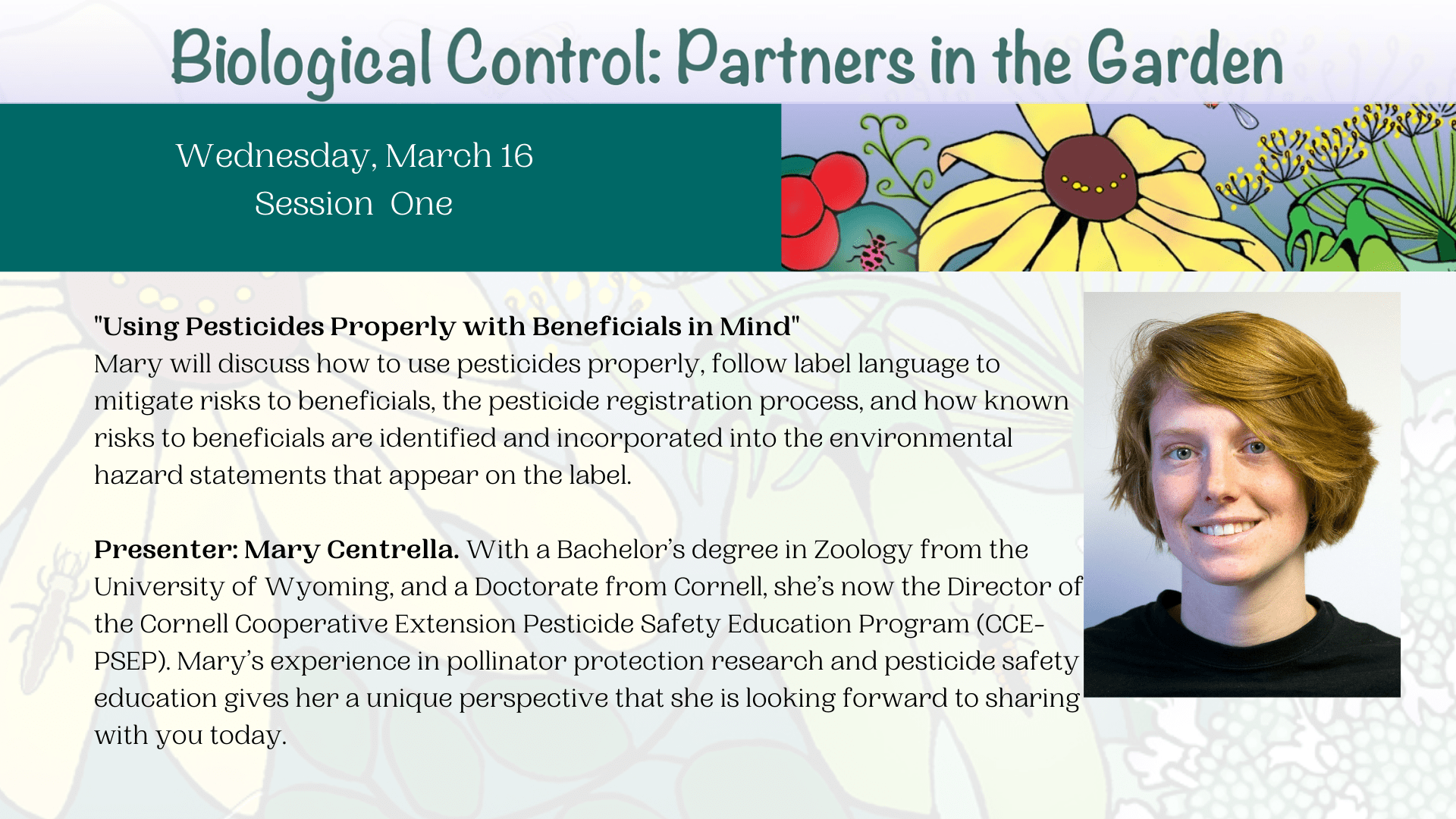
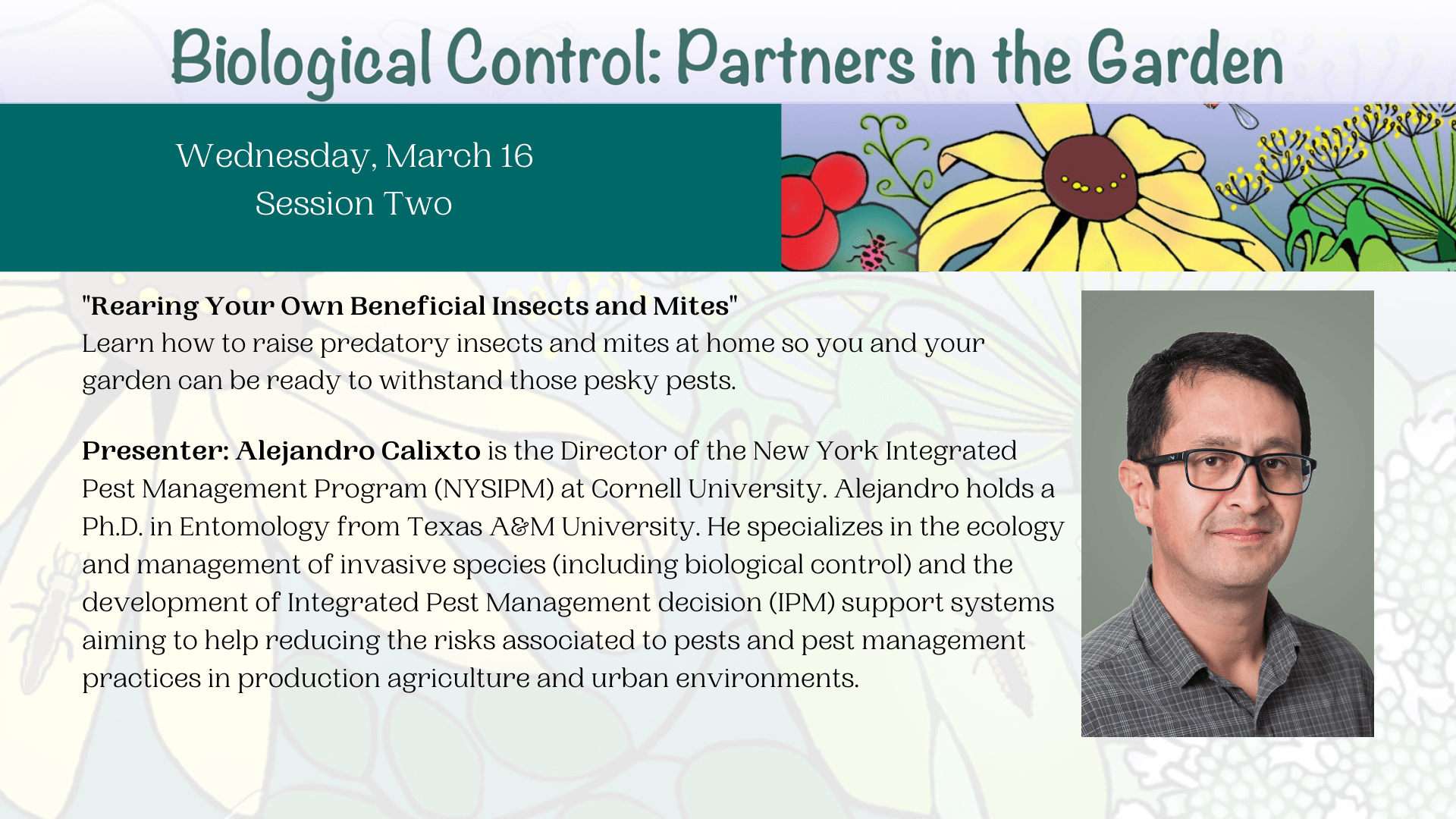
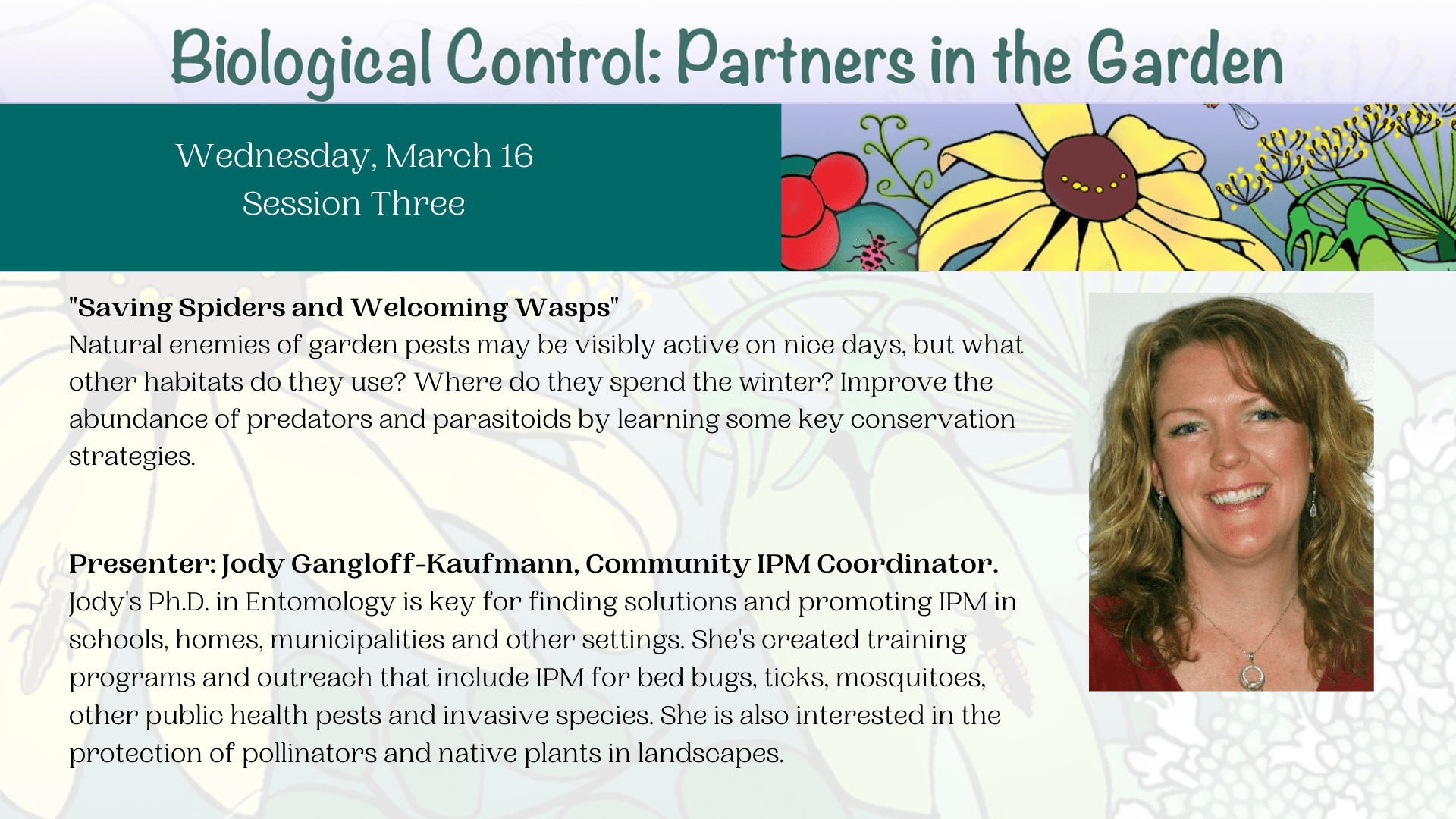
To round out the two-day conference, Attendees will have the chance to play BIOCONTROL BINGO and complete a short survey that makes them eligible for a flash drive full of this year’s resources.

